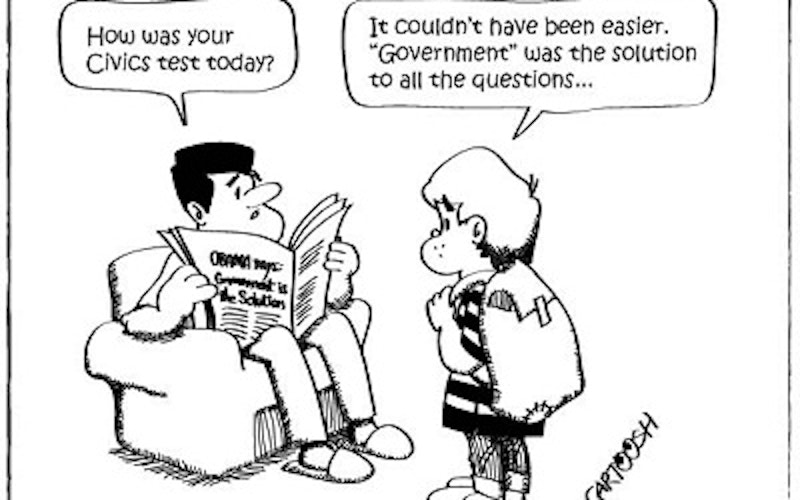
Culture At Large
Why Big Society and Big Gov't are both smaller than God's grace
It’s the one question that dominates the debate over Medicare, Social Security and pensions: Who is responsible for fixing the problems in society?
In the United Kingdom, the question has been on people’s minds all the more recently, given Prime Minister David Cameron’s commitment to creating a “Big Society.” At a time when government spending is shrinking due to massive debt, he feels that ordinary people, community groups and churches are best placed to pick up the slack.
The negative reaction to this idea seems to illustrate yet another place where the United Kingdom and United States are different. In the U.S., there seems to be a consistent fear of “Big Government.” In the United Kingdom, we protest if the government stops interfering. Privatization, not nationalization, seems to be the big green monster here.
So, who is responsible for fixing our society: us or the government?
I would venture to say that by even asking that question we have probably made a mistake. By asking whose job it is, we are really saying that it has nothing to do with us. What if the question became: How can the government, local communities and the church work hand in hand? What if we became more concerned with working in partnership than marking our territories?
Take alcoholism, for instance. Perhaps if we all worked together, we could not only treat the symptoms - domestic abuse, petty crime, broken families, poverty, liver disease and so on - but also the causes: loneliness, hopelessness, lack of purpose, psychiatric issues, abuse, shame, guilt. We might all agree that better policing, more effective social services and better medical treatment might deal with the symptoms, but they cannot even begin to deal with the causes. In short, there is simply no way that one person, one organization or even a government could deal with all of those areas on its own.
Similar points could be made about poverty, drug abuse, suicide, hunger, disease or human trafficking. We can all agree that these are real issues in society. We might even agree that it will take hard work to solve them. It is time we all agreed that it will take all of us working together to get the job done.
Both the church and the government have been put in their position by God. As Paul the Apostle said, “Everyone must submit to governing authorities. For all authority comes from God, and those in positions of authority have been placed there by God.”
A Biblical perspective, then, would realize that if God appointed both the church leadership and the governmental leadership, it makes sense for the two to work together. Yes, their authority may cover different fields, but they are there for the same purpose: to bring order and restoration to our fallen world. We need to recognize the strengths that local and national governments, NGOs and churches bring to the table and discover how to serve each other.
Doing any of this will require large amounts of humility and creativity. These really should not be a problem for any believer in Christ. After all, we serve the ultimate authority who also learned to humble himself, lay down his rights and work to save a suffering world.
(Image courtesy of Cartoosh/Wikimedia Commons.)
Topics: Culture At Large, Theology & The Church, Faith, Evangelism, News & Politics, World, North America